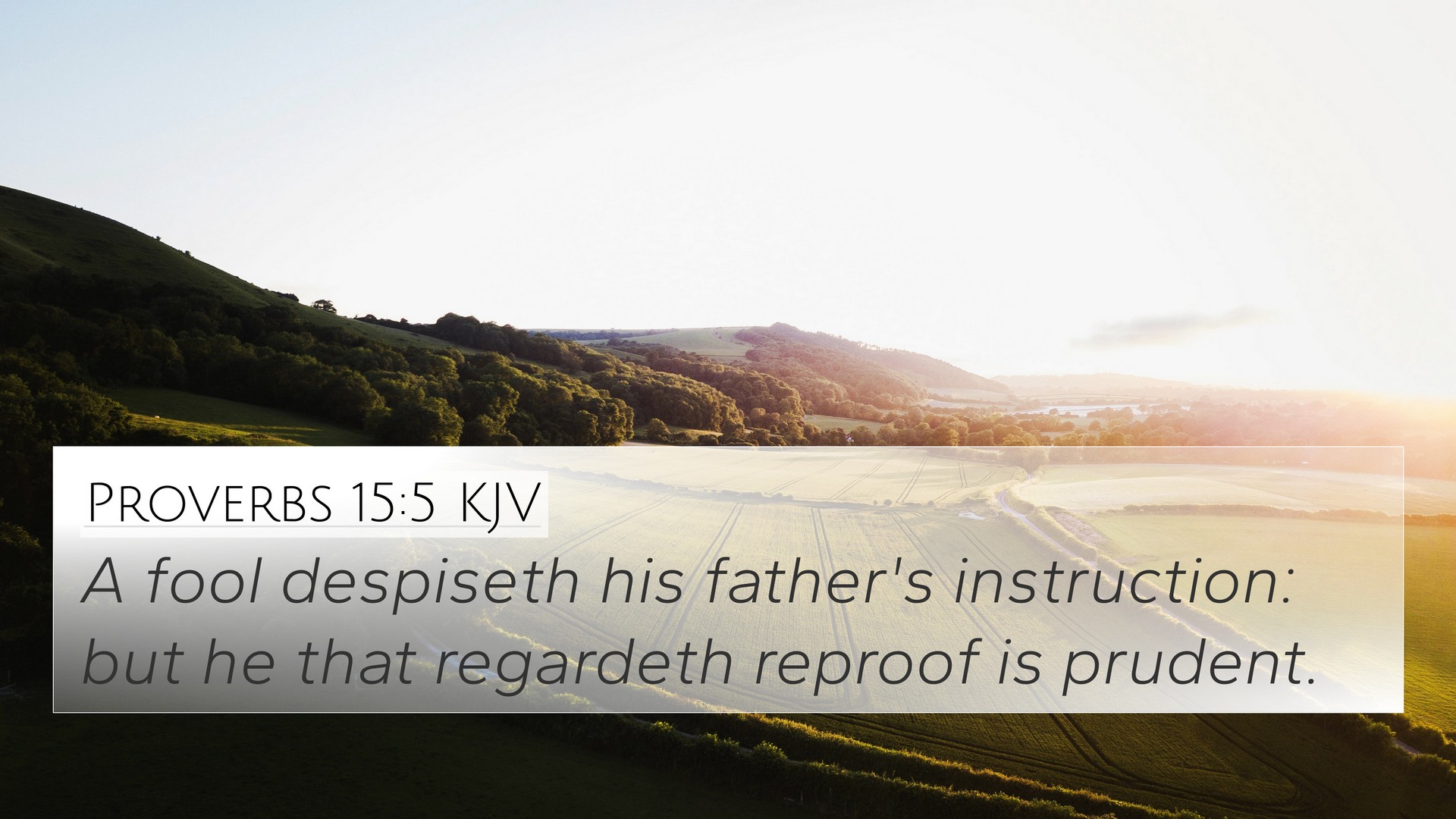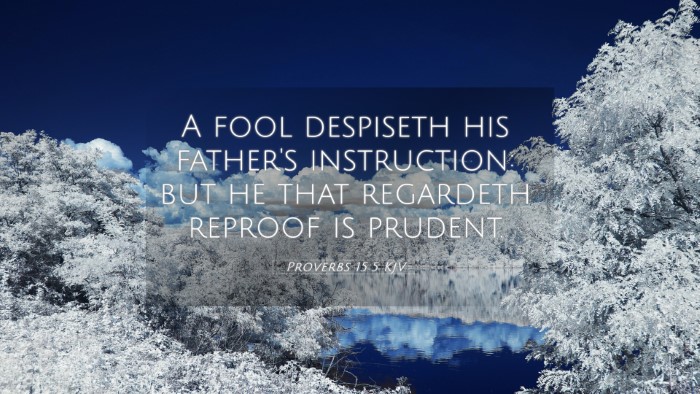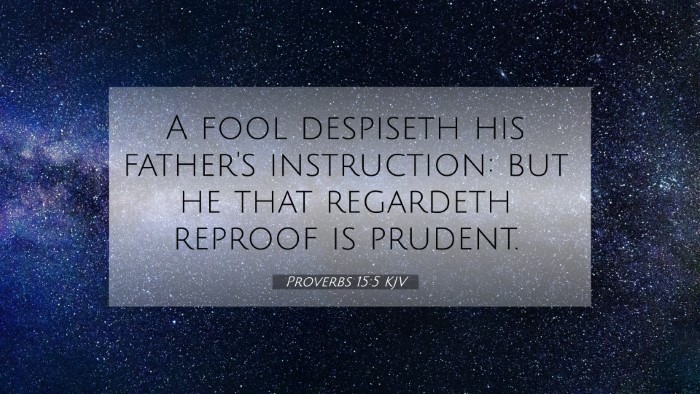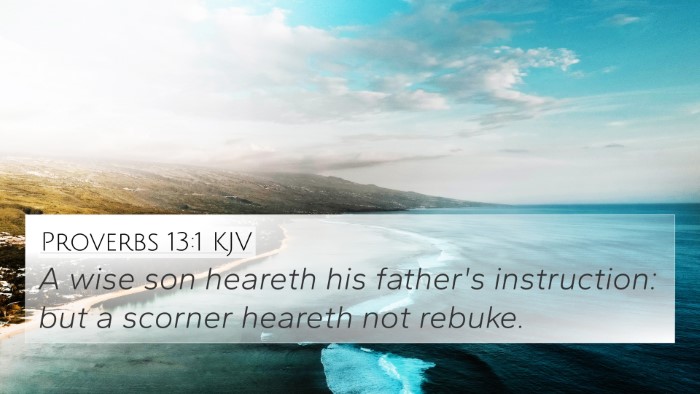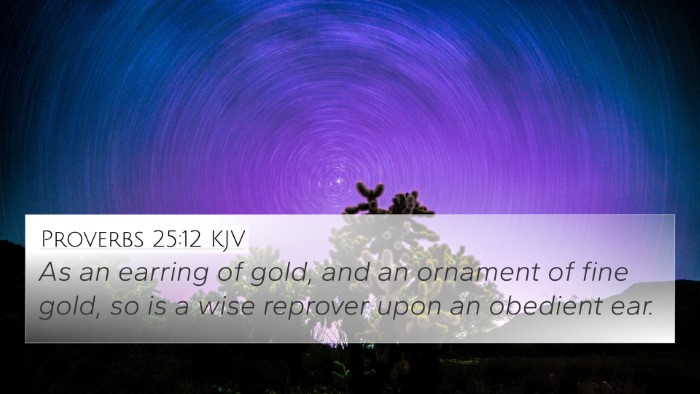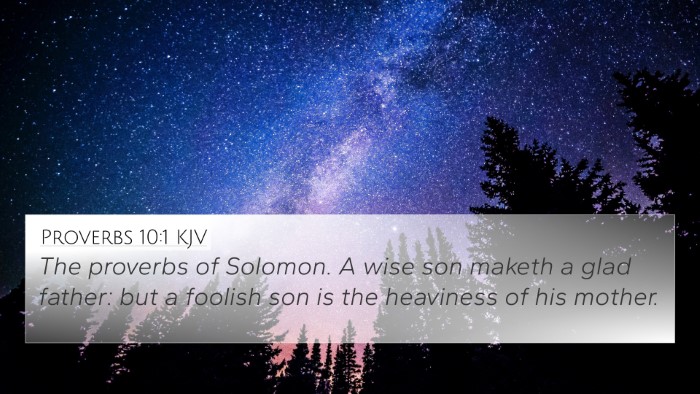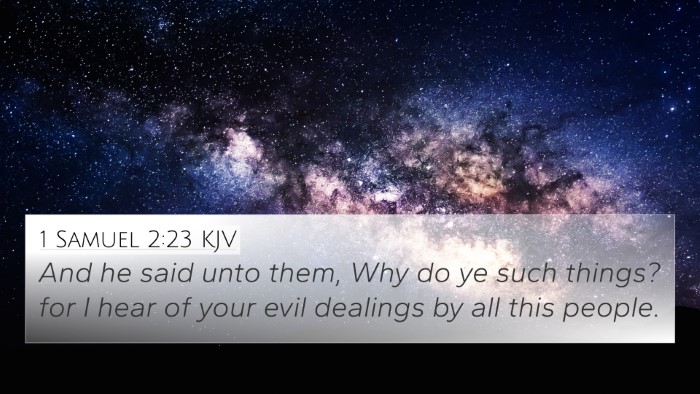Understanding Proverbs 15:5
Proverbs 15:5 states, "A fool despises his father's instruction: but he that regardeth reproof is prudent." This verse emphasizes the importance of wisdom and the value of parental guidance. The contrast is drawn between a fool who disregards wisdom and a prudent person who embraces correction.
Overview of Key Themes
- Parental Instruction: The significance of receiving wisdom from parents is highlighted.
- The Nature of Foolishness: The characteristics of a fool are outlined, showing disregard for wise counsel.
- The Value of Correction: A prudent individual's attitude toward reproof signifies a desire for growth and betterment.
Commentary Insights
According to Matthew Henry, this verse contrasts the foolish with the wise. He notes that fools often mock or scorn their parents' teachings, which leads to a path of self-destruction. In contrast, he emphasizes that the wise person cherishes and learns from reproof, seeing it as an opportunity for growth.
Albert Barnes expands on this by explaining that the father's instruction can represent not just earthly guidance but also divine wisdom. He cautions that neglecting this guidance leads to folly while embracing correction leads to understanding and maturity.
Adam Clarke further elaborates that the ability to appreciate correction is essential for a person's growth. He points out that proper reproofs and instruction are signs of love and care, thus the wise person honors and respects that care and guidance.
Cross-References for Proverbs 15:5
This verse connects to several other biblical passages that enhance its meaning:
- Proverbs 1:8-9: "My son, hear the instruction of thy father, and forsake not the law of thy mother."
- Proverbs 12:1: "Whoso loveth instruction loveth knowledge: but he that hateth reproof is brutish."
- Proverbs 13:1: "A wise son heareth his father's instruction: but a scorner heareth not rebuke."
- Proverbs 19:20: "Hear counsel, and receive instruction, that thou mayest be wise in thy latter end."
- Hebrews 12:11: "Now no chastening for the present seemeth to be joyous, but grievous: nevertheless afterward it yieldeth the peaceable fruit of righteousness unto them which are exercised thereby."
- James 1:5: "If any of you lack wisdom, let him ask of God, that giveth to all men liberally, and upbraideth not; and it shall be given him."
- Proverbs 10:1: "The proverbs of Solomon: A wise son maketh a glad father: but a foolish son is the heaviness of his mother."
Connecting Biblical Texts
The verse invites an inter-Biblical dialogue around the themes of wisdom, instruction, and correction. By comparing and contrasting it with these other passages, one can see the consistent biblical theme of valuing instruction and the consequences of folly.
Tools for Bible Cross-Referencing
Several tools can assist with deeper study and cross-referencing:
- Bible Concordance: Helps find verses by keywords.
- Bible Cross-Reference Guide: Guides readers to related scriptures.
- Bible Chain References: Connects numerous verses on a specific theme.
Conclusion
Proverbs 15:5 serves as a powerful reminder of the value of wisdom, the importance of receiving instruction, and the stark contrast between the wise and the foolish. Embracing correction is not merely a mark of maturity but also an essential step in the pursuit of a life that honors biblical wisdom.
Further Study and Reflection
For those wanting to delve deeper into the connections between this verse and others, consider exploring the thematic Bible verse connections regarding parental guidance, wisdom, and folly. This can enhance your understanding of how Proverbs fits within the wider biblical narrative.
